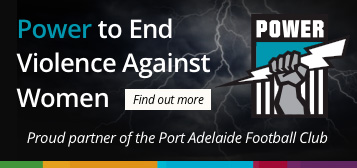Les Wanganeen’s greatest hope for children in care is that they grow up proud in culture and strong in spirit.
An Aboriginal Cultural Consultant at Centacare, Les cherishes his Narungga and Kaurna heritage and is committed to supporting children and young people to feel the same about their cultural roots.
“When I support children to return to Country, I see connection, excitement and familiarity,’’ he said.
Working in Centacare’s Children’s Services Unit, Les partners with foster families to normalise culture in everyday life.
This can include researching a child’s background and providing lingual support and other advice such as how to introduce cultural practices and beliefs in the foster home.
“Cultural connection is about linking children into the bigger picture and establishing their place in the kinship structure,’’ he said.
One third of the children in foster care with Centacare are Aboriginal, and many have a background of trauma and neglect.
Les said more Aboriginal foster carers are needed as the rate of Aboriginal and Torres Strait Islander children in out-of-home care continues to grow, at almost 33 times that of non-Indigenous children.
“My hope for the future is that there are less Aboriginal children in care, and that those who are have a strong connection to culture and sense of identity,’’ he said.
Cultural pride supports a child’s wellbeing and safety, adds Amalie Mannik, Manager, Centacare Foster Care.
“They are better placed to develop a sense of pride within themselves,’’ she said.
“You need to be able to put your roots down to be able to grow.’’
Centacare foster carers receive cultural awareness training and ongoing professional development, and are supported to develop all areas of a child’s life including family access, social relationships and cultural supports.
Prior to COVID-19, Les ran cultural connection mornings, with Aboriginal organisations and sector partners invited to speak and share their cultural practices with foster carers.







